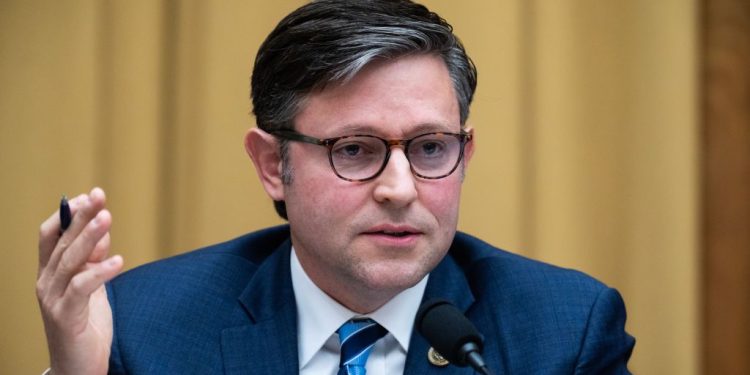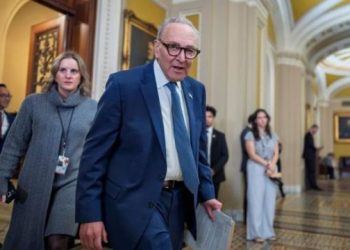On Sunday, congressional leaders announced a deal on a short-term spending bill to fund federal agencies for approximately three months, avoiding a potential partial government shutdown as the new budget year starts on Oct. 1 and postponing final decisions until after the November elections.
Lawmakers faced significant challenges in reaching this agreement as the current budget year ends. House Speaker Mike Johnson, R-La., under pressure from the most conservative members of his party, initially tied temporary funding to a mandate requiring states to verify citizenship for voter registration. However, Johnson couldn’t secure unanimous Republican support for this proposal, even as Donald Trump urged GOP lawmakers to reject any stop-gap measure without the voting requirement. The bill ultimately failed, with 14 Republicans voting against it.
Following the defeat, bipartisan negotiations began, resulting in an agreement to extend funding into mid-December. This allows the current Congress to craft a full-year spending bill after the Nov. 5 election, rather than passing the responsibility to the next Congress and administration.
In a letter to his Republican colleagues, Johnson described the budget measure as “very narrow, bare-bones,” containing “only the extensions that are absolutely necessary.” He wrote, “While this is not the solution any of us prefer, it is the most prudent path forward under the present circumstances. As history has taught and current polling affirms, shutting the government down less than 40 days from a fateful election would be an act of political malpractice.”
House Appropriations Committee Chairman Rep. Tom Cole, R-Okla., expressed optimism about the negotiations on Friday. “So far, nothing has come up that we can’t deal with,” Cole said. “Most people don’t want a government shutdown, and they don’t want it to interfere with the election. So nobody is like, ‘I’ve got to have this or we’re walking.’ It’s just not that way.”
Johnson’s earlier proposal had little chance of success in the Democratic-controlled Senate and faced opposition from the White House, but it allowed him to demonstrate to Trump and conservatives that he had advocated for their demands. The outcome—essentially maintaining government funding at current levels—was widely anticipated. With the election approaching, few lawmakers from either party were interested in the brinkmanship that often leads to a shutdown.
Now, a bipartisan majority is expected to advance the short-term measure. These temporary spending bills typically maintain funding at existing levels, but this one includes additional resources for the Secret Service, replenishment of a disaster relief fund, and support for the presidential transition, among other provisions.
 Telegram is where we really talk. Don't miss out!
Telegram is where we really talk. Don't miss out!







